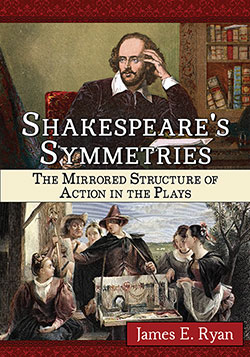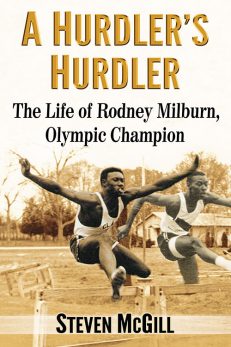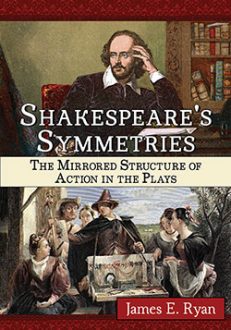Shakespeare’s Symmetries
The Mirrored Structure of Action in the Plays
$39.95
In stock
About the Book
The organization of Shakespeare’s plays has challenged, even baffled audiences and critics since the 17th century. Cymbeline has been dismissed as “incoherent.” Hamlet “is of no clear shape.” And Antony and Cleopatra “bewilders the mind.”
These judgments result from an incomplete understanding of Shakespeare’s constructive practice. It is not the narrative arc alone that organizes the plays but a complex structure of interwoven narrative and thematic actions. While the narrative varies from play to play, thematic actions are invariably created in mirroring pairs around the central scene: A-B-C-B-A.
This symmetrical pattern, which can be visualized as an arch with a focal keystone, is the foundation of all of Shakespeare’s mature work, as shown through an analysis of the 26 plays in this book. This arch illuminates the structure of plays that have long been puzzling, demonstrating that they are thematically organized and rigorously crafted. It also reveals subtleties otherwise invisible.
About the Author(s)
Bibliographic Details
James E. Ryan
Format: softcover (7 x 10)
Pages: 248
Bibliographic Info: appendix, notes, bibliography, index
Copyright Date: 2016
pISBN: 978-1-4766-6370-8
eISBN: 978-1-4766-2416-7
Imprint: McFarland
Table of Contents
Table of Contents
Preface 1
Part One: The Chiastic Design
1. The Chiastic Design 5
2. Isolating the Chiastic Design 20
3. Shakespeare’s Scene Division 26
4. Shakespeare in Nine Scenes 36
5. Richard II: Thematic Arch and Imagery 44
6. The Merchant of Venice: Thematic Arch, Scene Division and Imagery 52
Part Two: Reading the Chiastic Design
7. The Thematic Arch of Julius Caesar: Sacrifice 58
8. The Construction (and Catholicism) of King John 69
9. Henry IV: The Structural Similarity of Parts One and Two 84
10. The Thematic Arch of The Merry Wives of Windsor: Role-Playing 92
11. Instinct and Artifice in As You Like It 99
12. The Thematic Arch of Henry V 107
13. The Anomalous Arch of Hamlet 116
14. The Stories in Troilus and Cressida 125
15. The Thematic Arch of All’s Well That Ends Well: Hubris and Humiliation 135
16. Act Division and Feeding Actions in Othello 142
17. The Thematic Arch of Folio King Lear: Evidence for the Quarto as a Draft 155
18. The Thematic Arch of Macbeth: Reconsidering Hecate 164
19. The Triple Arch of Antony and Cleopatra 170
20. The Thematic Arch of Coriolanus: Action and Eloquence 178
21. The Thematic Arch of Cymbeline: Sacrifice 186
22. The Parallel Plays of The Winter’s Tale: Entertainment 195
23. The Thematic Arch of The Tempest: A Hand for Prospero 202
Appendix: Narrative Analyses 221
Chapter Notes 223
Bibliography 233
Index 237





